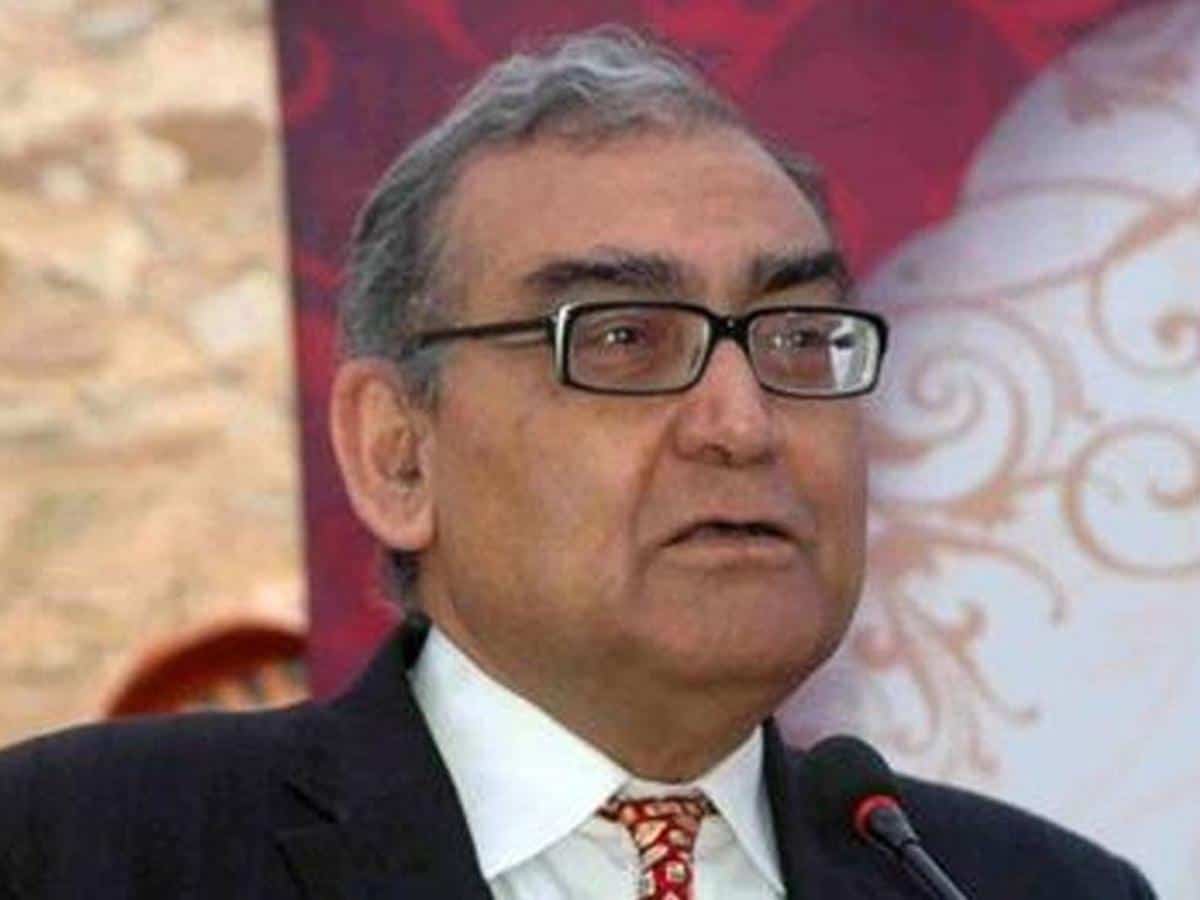By Mohammed Hussain Ahmed
Hyderabad: The former Supreme Court judge Markandey Katju has severely criticized Indian media in his recent article.
According to Katju, a big part of Indian Media has lost people’s trust today. It has turned into what it is being referred to in the country as “Godi Media” (patronized media). Katju quoted a statement of Magsaysay Award-winning Indian journalist Ravish Kumar who said that the Media instead of being the ‘Fourth State’ and serving the people, has simply became a part of the ‘First State’. “Ravish Kumar’s statement raises a key question in our minds: what is the role of Media?”, wonders the former SC judge.
Katju sheds light on ‘history of media’
Shedding light on the history of media, Katju said, “The print media emerged in the 17th and 18th centuries in Britain and France as an organ of the people against the feudal tyranny. The established organs then were in the hands of the feudal despotic authorities – the King and his coterie aristocrats. The people were in need of an organ that could represent them. This is how the Print media came to be known as the fourth state. In Europe and America, it represented the voice of the future as contrasted to the established feudal organs which wanted to preserve the status quo. The media thus played an important role in transforming Europe from a feudal society to a modern one.”
“The famous European writers Voltaire, Rousseau, Diderot, and Paine used the Print Media – which was merely in the form of booklets and pamphlets and not as newspapers – to fight the feudal system, religious fanaticism, and superstition”, Katju said.
Speaking about the presumed role of Indian Media, Katju said: “Our goal is to transform India from a backward into a highly developed and industrial country. Indian media can play a big role to achieve this goal. If we fail to do so then our nation would suffer immensely due to widespread poverty, unemployment, malnutrition, superstition, and illiteracy.”
“The Indian media often diverts the attention of the people from the real issues to non-issues”, said Kajtu known for his critical statements. “The real issues in India are socio-economic, the terrible poverty in which 80% of our people are living, the massive unemployment, the price rise, lack of medical care, education and backward social practices like honor killing and caste oppression and religious fundamentalism, etc. Instead of devoting most of its coverage to these issues, the media focuses on non-issues like film stars and their lives, pop music, disco dancing, astrology, cricket, reality, and fashion shows”, declared the former SC judge.
Media’s apathy
Citing a typical incident of the Media’s apathy towards the people’s real issues, Katju said: “A fashion show was organized sometime in Mumbai by Lakme Fashion which was covered by 512 accredited journalists. In that fashion show, women were displaying cotton garments, while the men and women who grew that cotton were killing themselves in Vidharba not far from that venue due to their economic woes. Nobody told their stories except one or two journalists locally.”
Talking about the recent past when the Indian media over hyped some incidents and used them for demonizing certain sections of the Indian society, he said, “There are a number of instances when the TV anchors simply abandoned their professional ethics and unabashedly practiced communalism. For example, most of the Indian Media ran a vilification campaign against “Tableeghi Jamaat” – a purely religious Muslim organization. The media erroneously described them as responsible for spreading the ‘Coronavirus’ in the country. The Courts across India including the Supreme Court have absolved all the members of this organization from all the hyped up charges leveled against them by the Media.”
Katju added, “The Media is at it again with regard to the ‘Farmer’s agitation’. It described the agitating farmers as Khalistanis, Maoists and anti-people.”
“Instead of demonizing various sections of the Indian society on communal grounds, the Indian media must oppose those who believe in feudalism, casteism, and communalism and it must confront such communal and disruptive forces with its full might. It is high time Media redeems its reputation as a true organ of the people to be rightly called as the fourth state”, the former SC judge advised the Indian Media.

